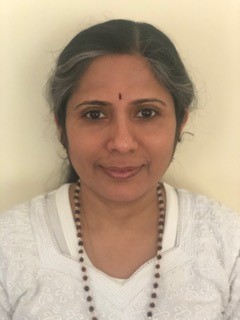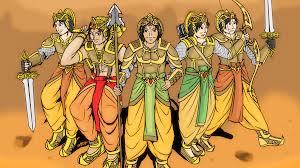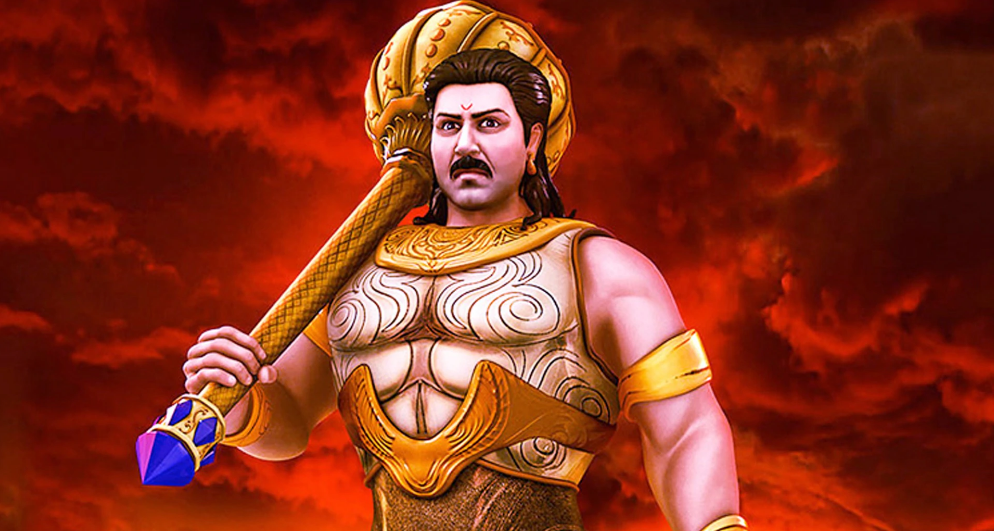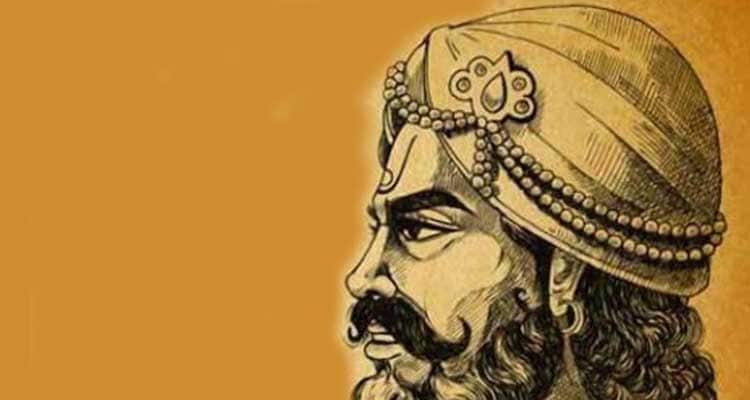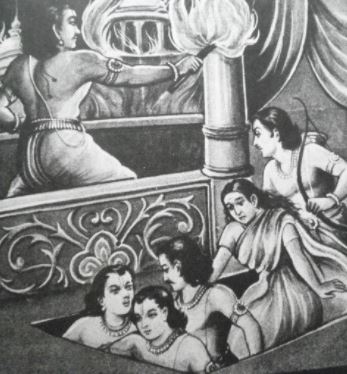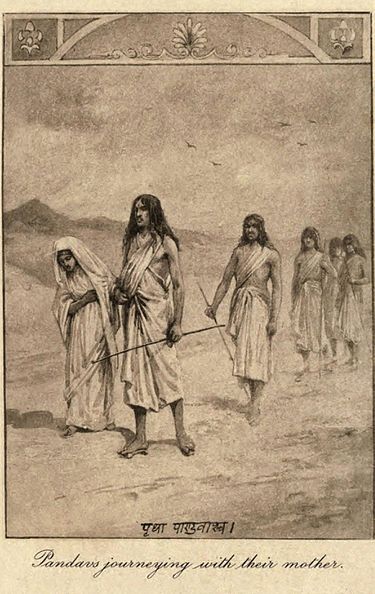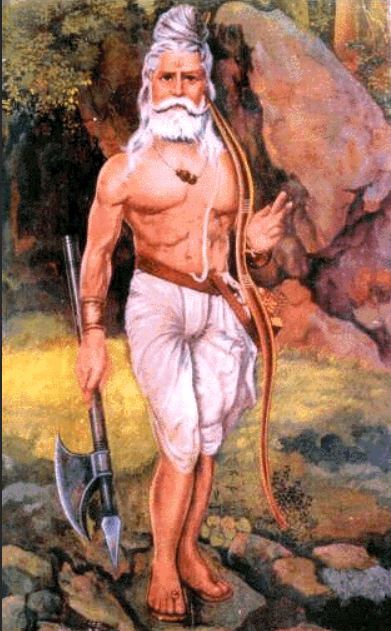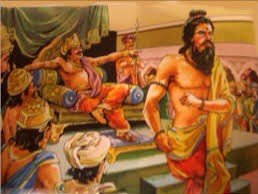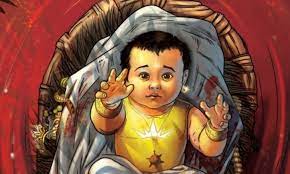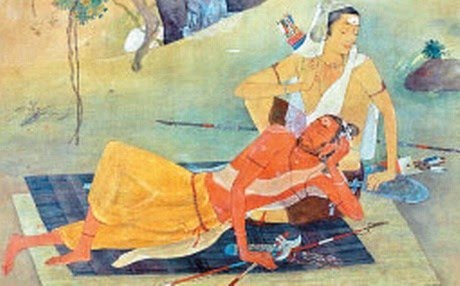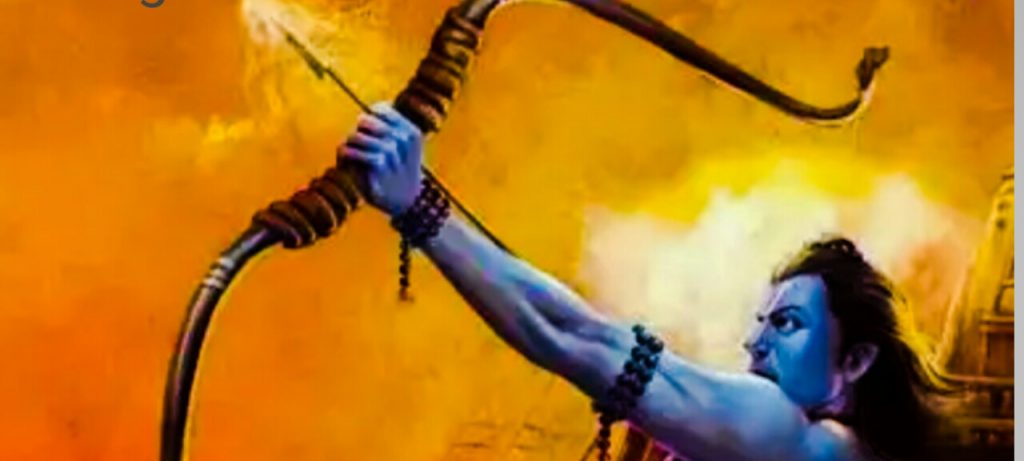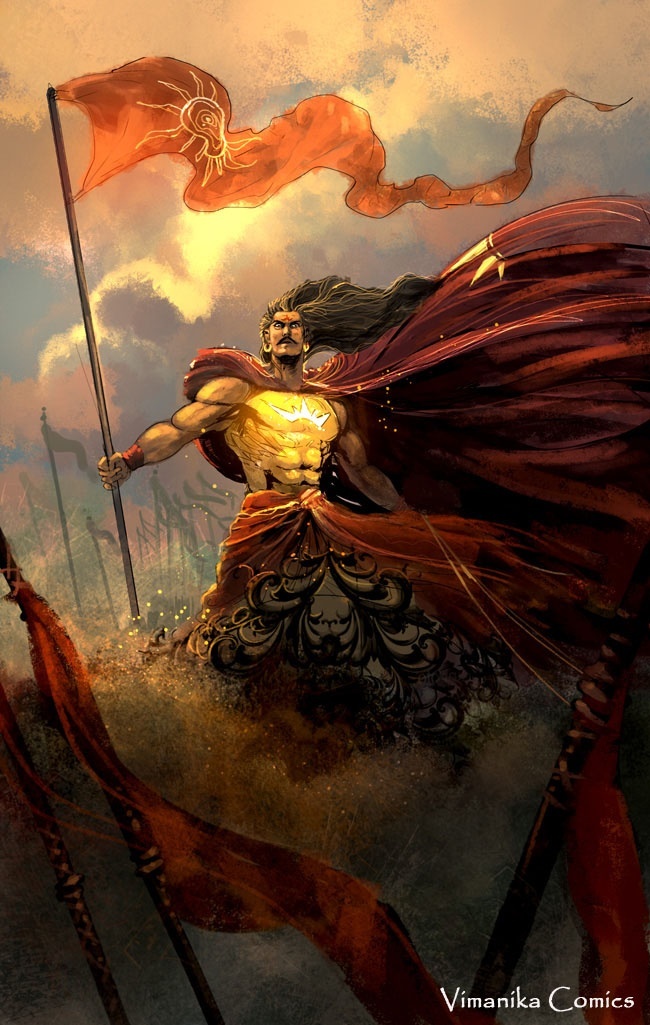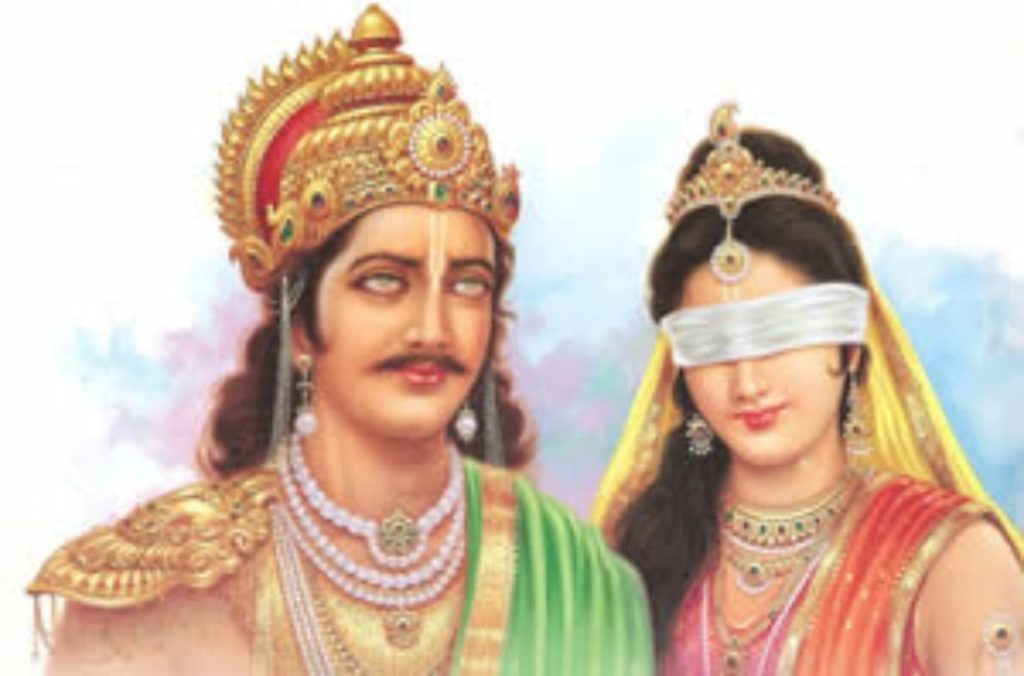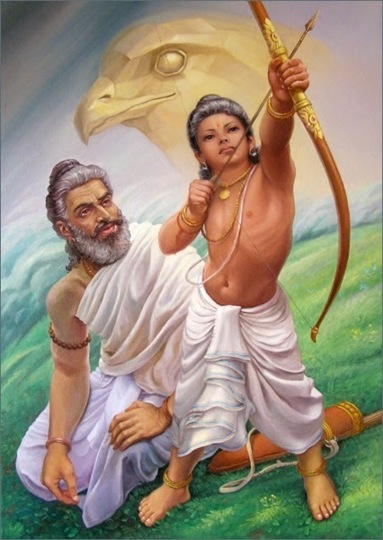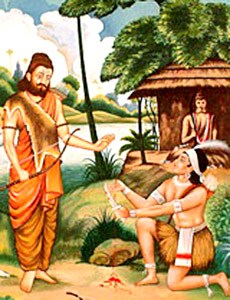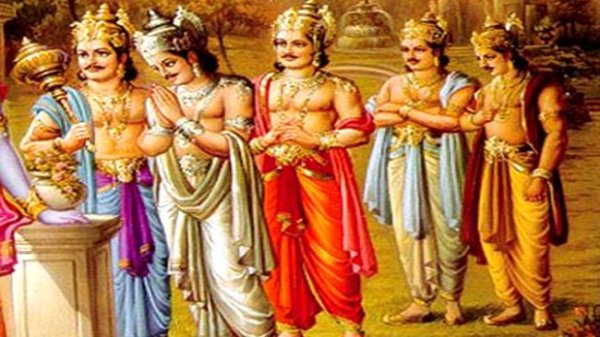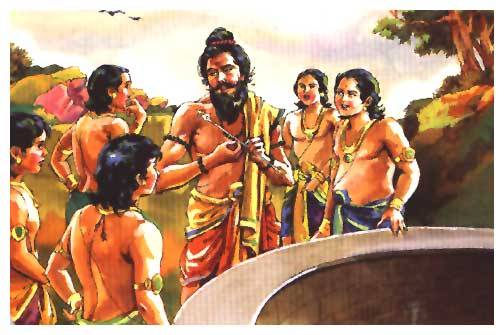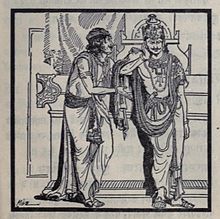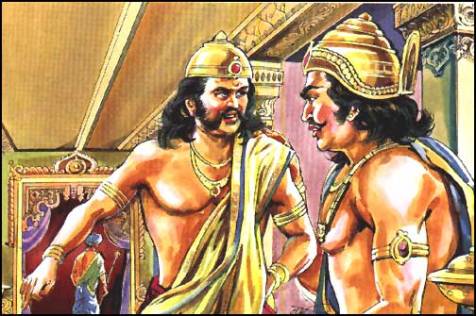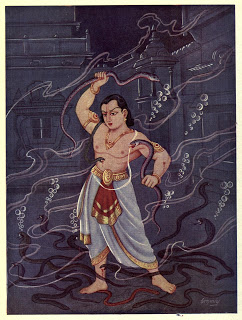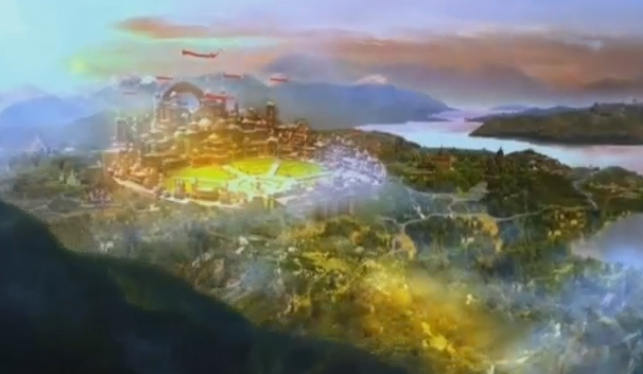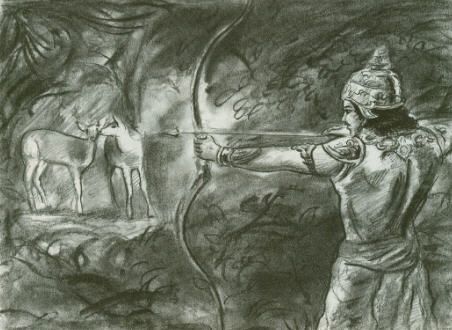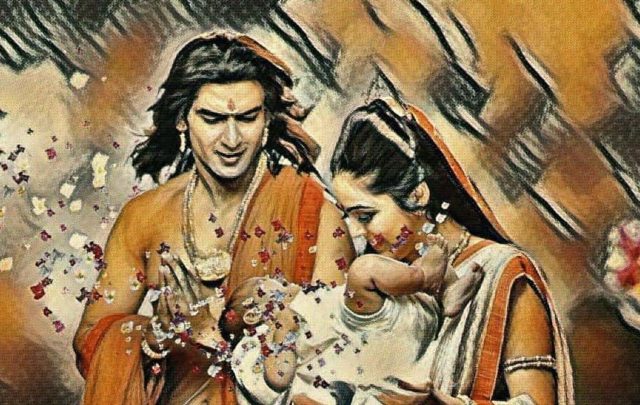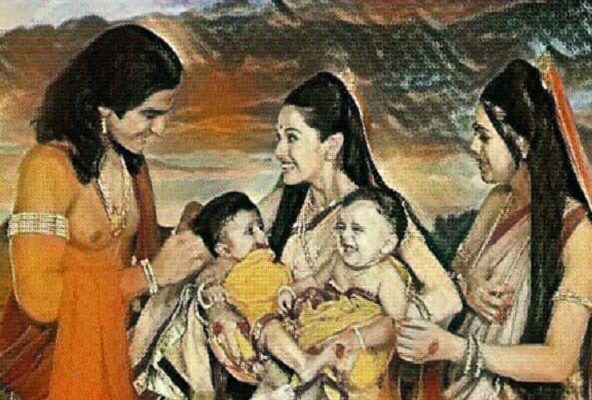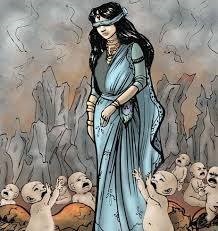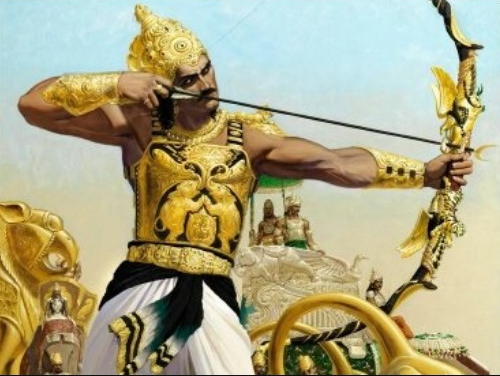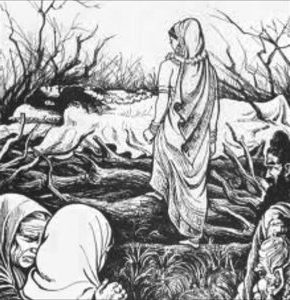By Nirooshitha Sethuram
In Panchala, Dhrishtadyumna requested the suitors come forward for the trials to begin. Kings and princes came forward, eager to display their skills. But they soon failed and sat with their heads hung low out of shame. All eyes turned to Karna as he stood, preparing himself for the challenge. But before he even picked up the bow, a few princes objected to his participation, as he was the son of a charioteer. Hearing this, Draupadi herself refused to marry Karna, even if he were to be successful in performing the heroic act.
Karna was yet again insulted in public. With a broken heart, filled with extreme hatred, he withdrew from the competition and walked out of the venue. Even Duryodhana didn’t try stopping him. After he left, many other kings and princes tried but they all miserably failed.
Drupada and his son Dhrishtadyumna were getting worried, seeing princes known for their skill at archery failing to fulfill the condition of the svayamvara, bridal contest. The challenge now seemed almost impossible to be performed by anyone. Drupada, whose dream was to get Arjuna married to his daughter, was already greatly disappointed, thinking that the Pandavas perished in the house fire in Varanavata. At this point, it was haunting him more than ever.
At the same time, with no one able to win the challenge, the audience began to talk about Arjuna and his valor. They were saying that, if only Arjuna was alive, he would have done it in no time. Hearing this boosted Arjuna’s interest in participating in the challenge. Meantime, Krishna alone recognized Arjuna. By looking straight into his eyes all the way from the podium, Krishna gave him encouragement with a beautiful smile spreading across his face. This made Arjuna make his move. Arjuna slowly got up from his seat and advanced towards the podium. The brahmins were in shock. Some of them, agitated by his stepping forward, started shouting at him, saying he would bring disgrace to the brahmins by failing badly. But some welcomed his courage and appreciated his boldness. The elders prayed and blessed him to succeed. Due to his disguise, no one recognized that he was really Arjuna, the prince.
In his disguise as a brahmin, Arjuna requested Dhrishtadyumna’s permission to participate in the contest. After consulting with his father, Drupada, and with Krishna, Dhrishtadyumna agreed. Arjuna first honored his guru within himself, bowed to everyone in the arena.
Then, giving due respect to the bow, in no time Arjuna picked it up and strung it. To everyone’s astonishment, he shot the arrow, piercing the eye of the fish successfully. The entire arena erupted with loud applause, especially from all the brahmins. They were thrilled with what they witnessed. They couldn’t believe their eyes. Their happiness was boundless.
Drupada, his son and daughter were pleased to see the brahmin’s success. Not only were they pleased, they were also relieved that the contest ended with an outcome. Only a few minutes earlier, they were worried that no one would pass the test that was set. The defeated princes were not at all happy about the outcome. They started complaining about giving permission to a brahmin to participate in a royal event.
Ignoring all the commotion among the kings and princes, Draupadi walked gracefully up to the brahmin and put the bridal garland around his neck. Her face bloomed like a lotus, meeting her future husband for the first time. Immediately, Yudhishthira, Nakula and Sahadeva went to the potter’s house to inform Kunti of the events that had taken place. Bhima decided to stay with Arjuna in case there was an attack from the unsuccessful suitors.
As expected, the happenings made some of the royal guests jealous and angry. They felt they had been humiliated and insulted by King Drupada and his son, by their marrying princess Draupadi off to a mere brahmin. They couldn’t tolerate the insult brought upon them, so they wanted to teach a lesson. They picked up their weapons and were ready for a fight.
Arjuna picked up his bow and arrows, ready to defend Draupadi and her family. The brahmins also rose in support of Arjuna, thinking that they were supporting another brahmin. Arjuna assured them that he could single-handedly manage the fight. Many kings and princes fell under the rain of arrows flashing from Arjuna’s bow. Some of them got so frightened that they ran away. Duryodhana brought Karna back into the hall so he could participate in the fight. Even though Karna was reluctant to fight a brahmin, Duryodhana instigated him to fight. But Karna also couldn’t stand up to the fiery Arjuna. He applauded the brahmin for his brilliant skill in archery.
Soon enough, Bhima thought it was time for him to join his brother in the fight. He went outside the hall and uprooted a huge tree. Using it as his weapon, he attacked the enemies. Krishna and Balarama tried their best to bring peace to the situation by calming the angry mob. Arjuna, together with his brother Bhima, were able to defeat their opponents.
After the fight was over, getting permission from Drupada, Krishna and Dhrishtadyumna, Arjuna took Draupadi with him to his mother, Kunti. Draupadi’s brother Dhrishtadyumna followed them, secretly wanting to know more about the brahmin who was marrying his sister.
Though Yudhishthira, Nakula and Sahadeva had left early to go to their mother, they we delayed by the crowd in the city. By the time they reached the potter’s home, Bhima, Arjuna and Draupadi were arriving at the same time. They found Kunti busy in her prayers. One of the brothers shouted excitedly at Kunti, saying, “Look, mother! See what Arjuna has brought home today!” Kunti had her back towards them. Without looking at them she said, “Whatever Arjuna brought, divide it equally among all the five of you as always.” This was said without her knowing that Arjuna had won Draupadi’s hand in the swayamvara and brought her with him to the hut. She only thought of the alms they brought every day.
The brothers were dumbstruck by their mother’s command. Draupadi was jolted by this command and stood still, like a stone. This silence made Kunti turn towards them. She too was shocked, seeing the beautiful princess Draupadi standing at the entrance with Arjuna. She felt embarrassed about what she had said. She somehow put herself back together and said that she misunderstood, thinking that they were talking about the alms they brought in.
That was the one and only reason she said what she said. However, her words are a command to her children. Knowing this, she was regretting what she had said. This command would make Draupadi to commit a social sin. That made her even more worried.
They were all looking for a way out of this cursed situation but couldn’t find any good solution. Talking among themselves, the brothers said that Arjuna should marry Draupadi, while the rest of them would go to the forest and renounce worldly life. Arjuna was arguing against it, saying that Yudhishthira, as the eldest, should marry to Draupadi while the other four would go to the forest. The argument went on for a long time. Kunti was heartbroken that she had ruined her children’s lives.
Looking at the whole thing revealed in front of her, at last Draupadi realized it was a wish she had made in her past life that brought this upon her in this life. She consoled Kunti and agreed to marry all five of them and to be their wife. Her brother, Dhrishtadyumna, following them secretly, witnessed all this. First and foremost, he was shocked to find out the brothers were none other than the Pandavas, and that the divine looking lady was Kunti herself. At first he was extremely happy that his sister had found Arjuna as her husband. But soon, when he heard the conversation about all of them sharing Draupadi as their wife, he was furious.
He rushed to the palace to disclose the pleasant news as well as the unpleasant twisted side of the reality. Drupada couldn’t believe his ears. He was so delighted to hear that his wish had come true, that Draupadi was won by the great archer, the royal prince of Hastinapura, Arjuna. But then he too was shocked and repulsed by hearing about his daughter marrying all five brothers. He was furious about the injustice brought upon his daughter by the Pandavas. A ritual of one woman marrying five men, that was never heard of. It was so against rightness. Drupada was disgusted by this news. All his happiness about Draupadi marrying Arjuna vanished.
At this pivotal time, the sage Vyasa arrived at the palace. Drupada asked Vyasa’s advice on this unthinkable crisis.
Vyasa revealed the boon Draupadi received from Lord Shiva before she was brought to the earth. Drupada was calmed down. Then he ordered stately arrangements to be made for the royal reception of the Pandavas and their mother Kunti.
More to come…
